Piolets d'Or Announces the "Significant Ascents" of 2023
This list of 68 climbs is effectively a "long list" used to select nominees of the prestigious alpine award.
Gluten intolerance, vegan, Halal, nut allergy, dairy-free, Kosher… whatever your dietary restrictions may be, you don’t have to let it hinder your ability to get out and enjoy the backcountry!

We spoke with expedition whitewater kayaker, Ben Stookesbury, about his experience of maintaining a vegan diet on long kayaking expeditions. As a guy that needs to hike to remote rivers, nutrition, to maintain endurance is key. As Ben's puts it "I began going after rivers that had not yet been explored, and quickly realized the endurance component of carrying a heavy kayak – sometimes days into a wild river or around unrunnable stretches of river – was the key to the mission".
We took Ben's advice and put together some tips for dealing with your dietary restrictions in the backcountry.
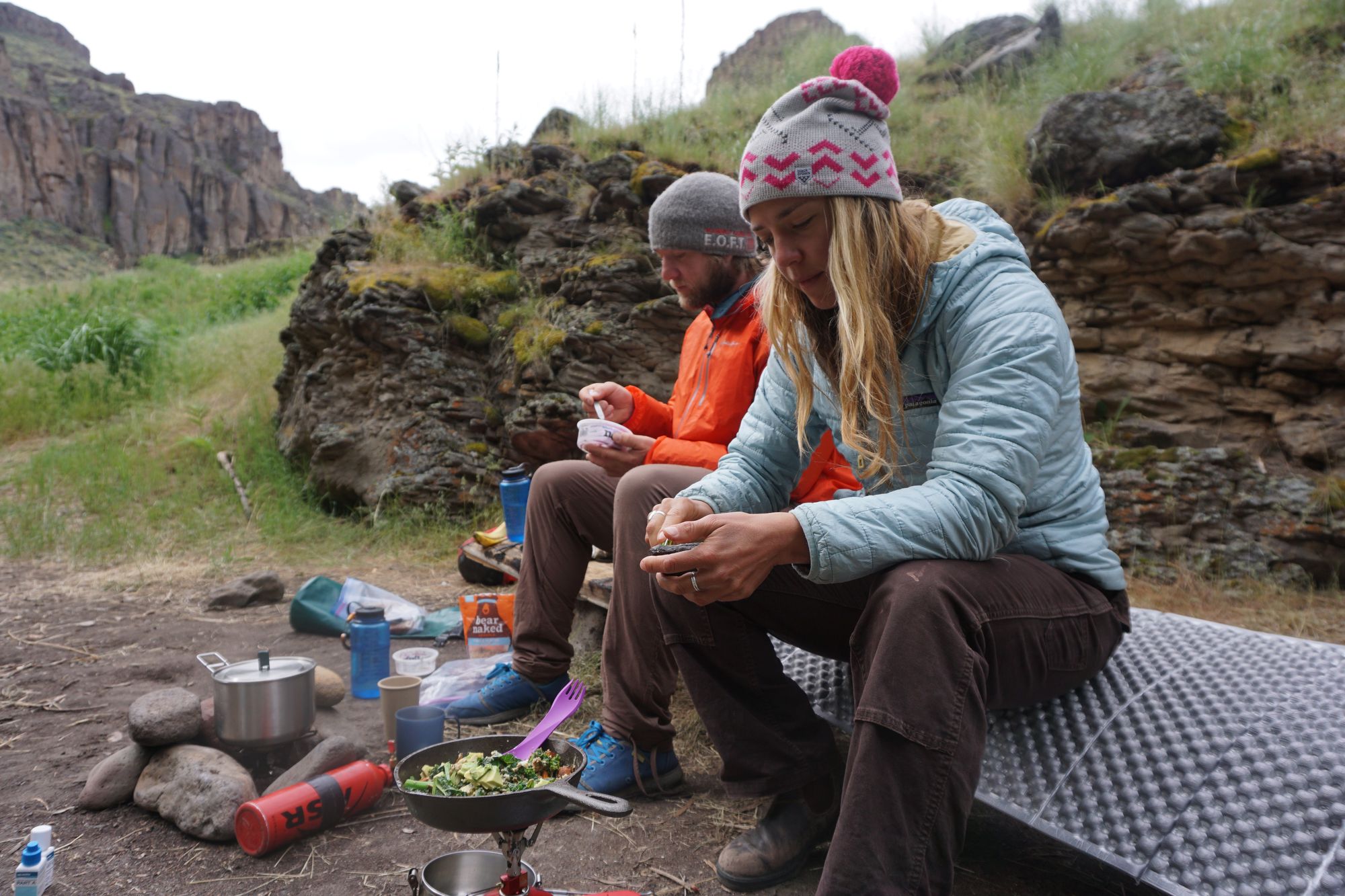
Preparation is Key
It’s easy to head to REI and buy the pre-made freeze-dried backpacker meals. They are easy to prepare, lightweight, and a quick cleanup. The cons? They are expensive, kinda gross, and most likely don’t comply with your food intolerances or restrictions! So, instead of doing that, just prepare your own meals!
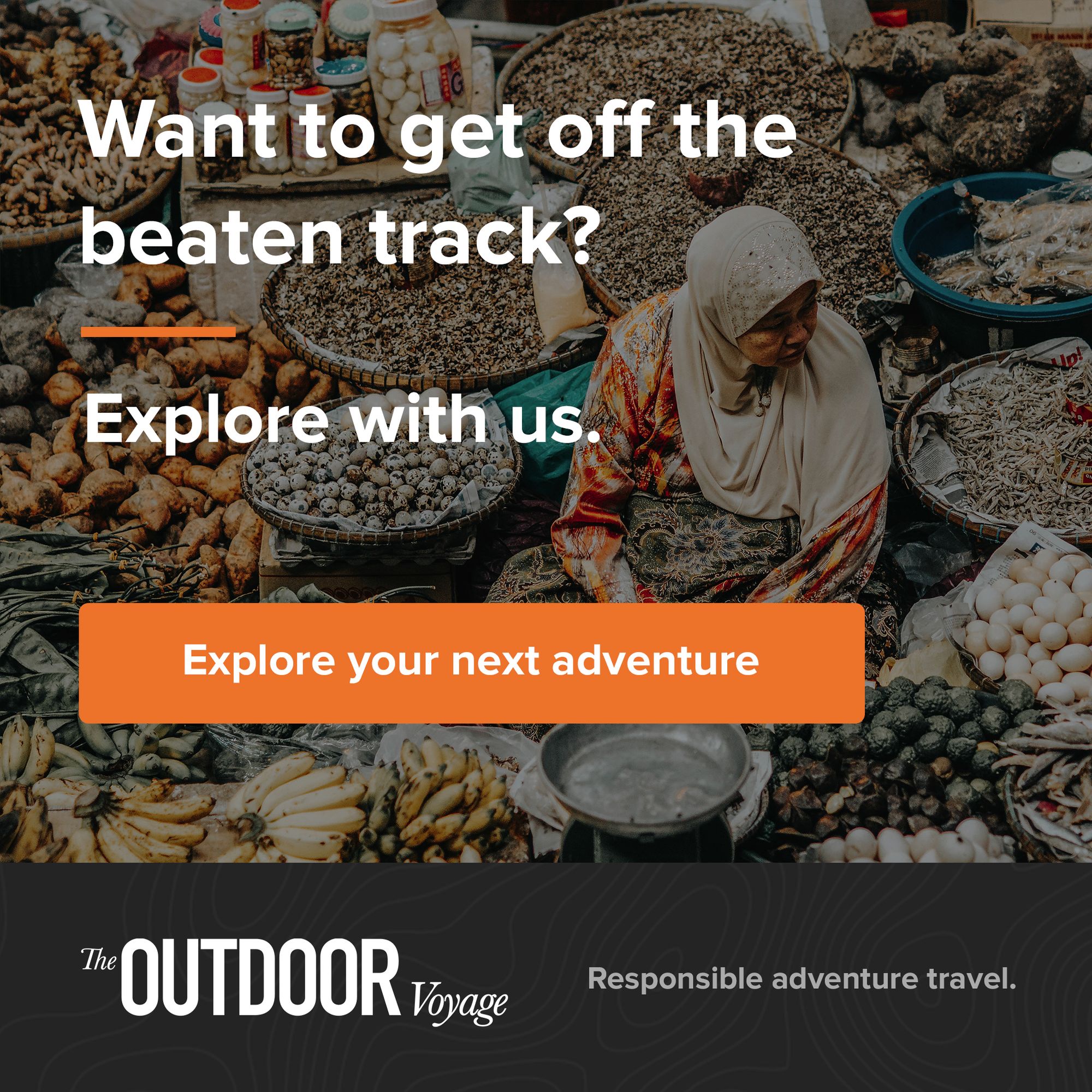
Plan your meals ahead of time, so you know exactly what ingredients to shop for before you go on your trip. Crack a bunch of eggs into a nalgene for scrambled egg dinners. Portion out oatmeal, nuts, dried fruits, and chocolate chips into a ziplock for breakfasts. Make your own granola bars, jerkey, and bread for sandwiches. Know exactly what food you will eat for each meal while you are in the backcountry, and prep it accordingly.
For Stookesbury, planning and preparing his meals before a long trip “takes some focus and forethought… but it feels quite empowering to be so much more cognizant of what I am putting in my body, and obviously there is simply no longer the need to eat much of anything that has all those nasty preservatives.”
Go With Good People
Unfortunately, some people are not as accommodating of food restrictions of others. I can’t say why, but some people think of food restrictions as “picky eating” and “high maintenance”, rather than a serious medical need or a spiritual belief. The fact that you may get seriously sick from eating gluten, or go into anaphylactic shock from your food being near peanut butter might not quite register on their radar. It doesn’t mean they are a bad people, but it might mean you avoid going on long backcountry trips with them in the future.
Alternatively, there are many people out there who are WONDERFUL to plan trips with. They will go out of their way to make sure you have the food you need, and will often sacrifice their own meal plan in order to include you in the group cooking. These people are the best, and you should keep them in your contacts for future backcountry trips. Sharing food and coordinating meals with the group will save both time and weight while carrying food into the backcountry, so going with good people who don’t mind accommodating your dietary needs is key!
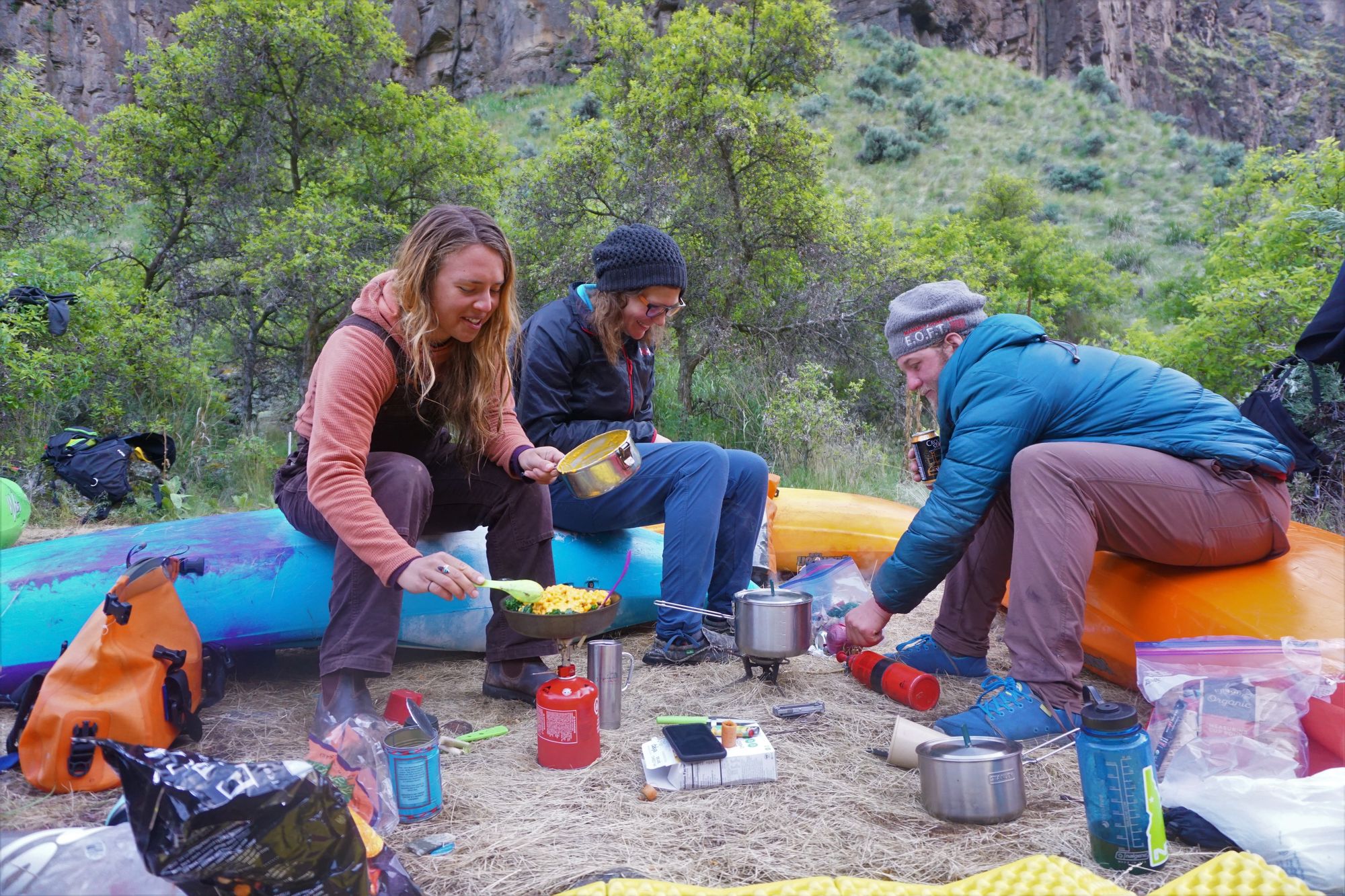
Make Time For Three Full Meals A Day
No NOLS-style meal plans here. Stookesbury says one of the most important parts of expeditioning is “planning the time to eat three tasty meals a day.”
Give yourself enough time in the morning to cook up a hot breakfast. Plan a one hour stop mid-day to prepare a sandwich or wrap for lunch. Give yourself enough time in the evening at camp to cook a meal of veggies, protein, and carbs. Without the ease of the freeze-dried backpacker meals, you will have to put more time into your meal prep. But don’t worry, you’ll be happy you did when you are eating a freshly-prepared meal of roasted veggies and quinoa!
SNACKS SNACKS SNACKS!
Find a bar that works for you. And if you can’t - make your own!
I have spent the past year searching for the best gluten free and dairy free bars. I want the maximum amount of calories and protein, in the smallest possible package. As soon as I found one I liked, I ordered it in bulk on Amazon. I now have a stash of 50+ energy bars in my truck ready to be packed into a drybag, backpack, or ski jacket as soon as the need arises.
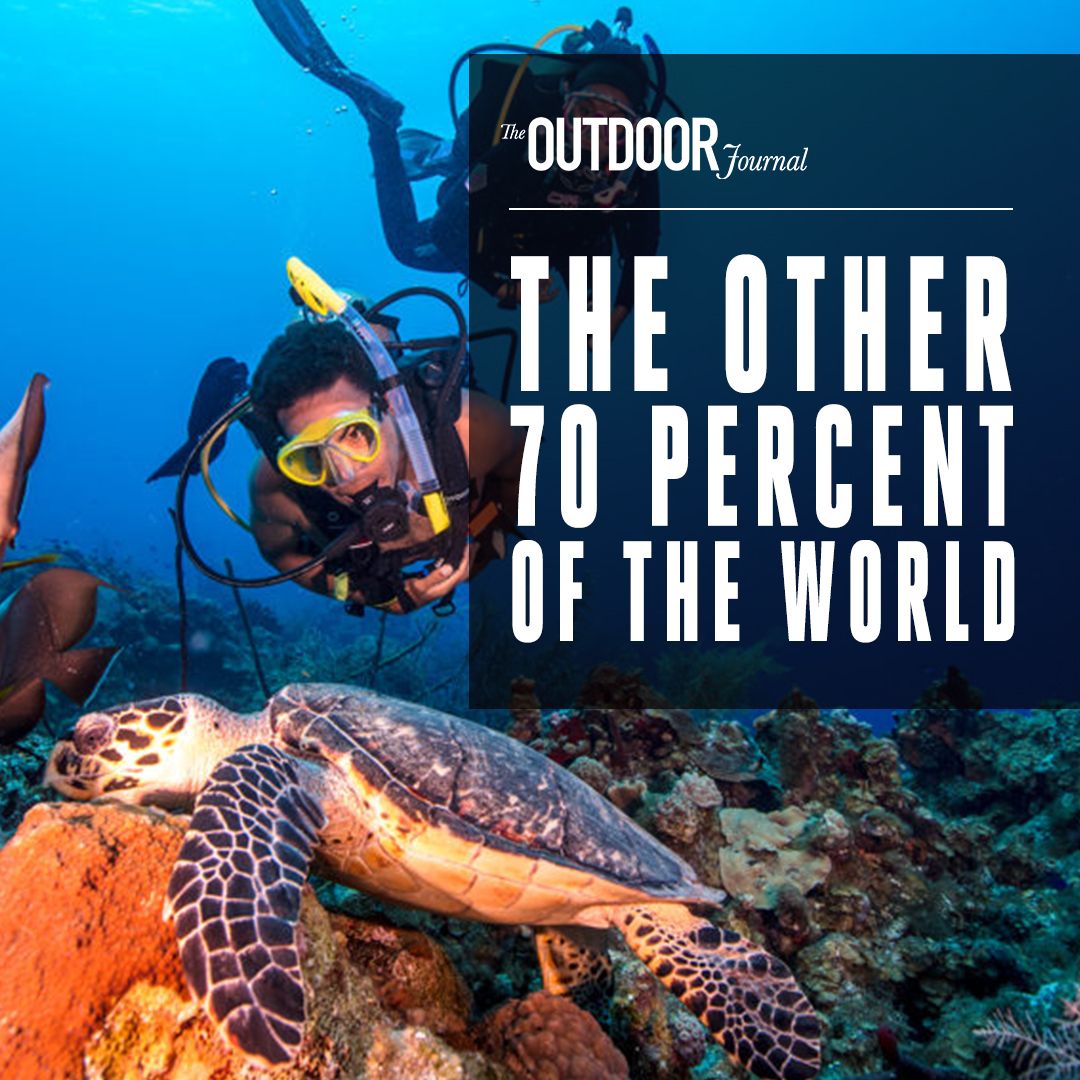
If you can’t find one that works with your diet, or can’t find one that you like - make your own! Any combination of dried fruits, nuts, oats, honey, and dark chocolate can make a damn good energy bar. You can find recipes online for homemade bars, then substitute various ingredients to make it work with your diet.
Stookesbury prefers the trail mix method to energy bars. “Nuts, dried fruit, and vegan chocolate is my personal substitute for an energy bar, and I call it a homemade energy bag! Keeping that ‘Power Bag’ of nuts, dried fruit, and some quality chocolate is a good way to keep your energy up and make snacking easy.”
Other popular snacking favorites include jerky, chocolate-covered almonds, cheese sticks (if you can eat dairy), and nut butters.
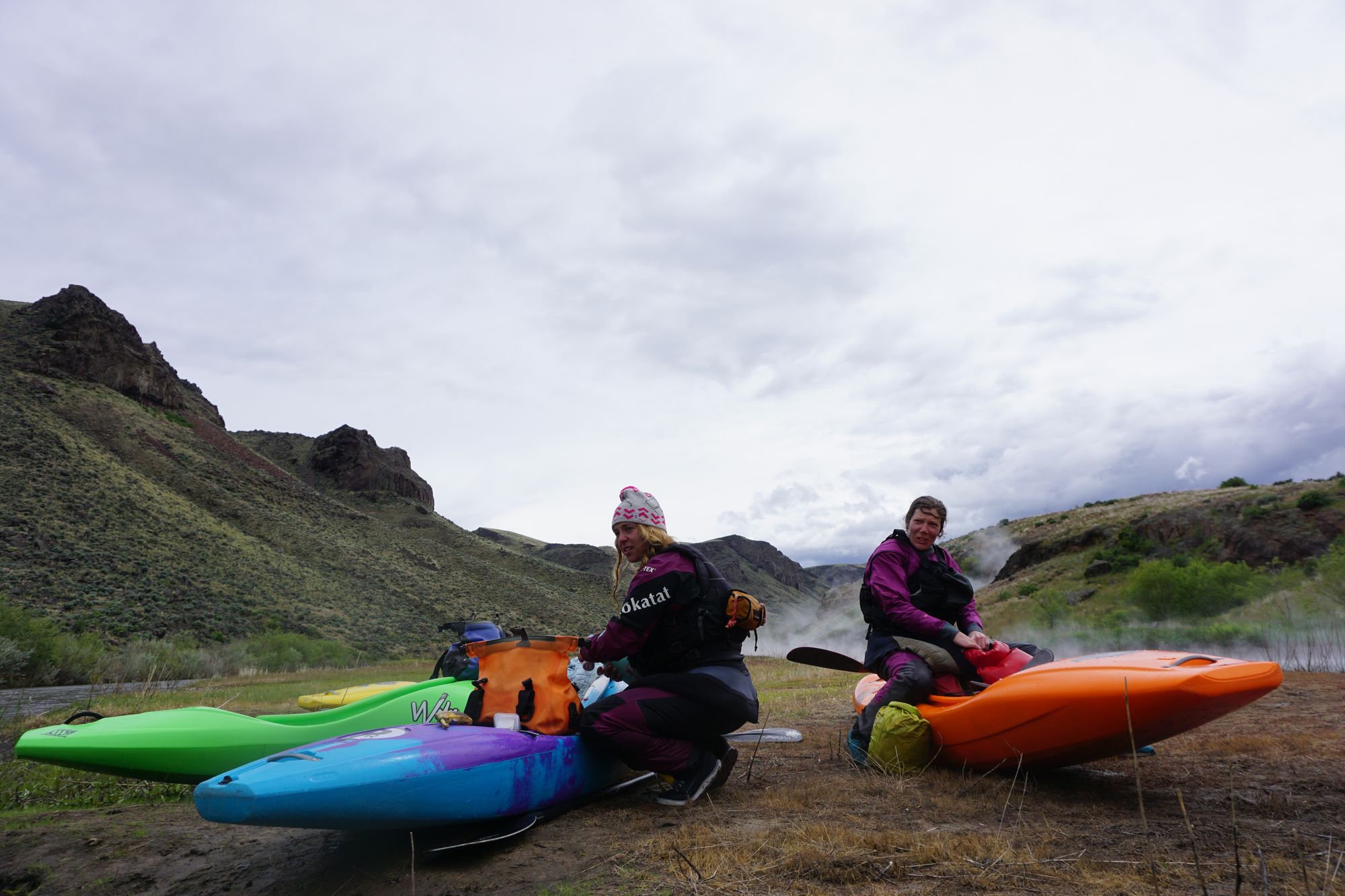
Be Prepared To Carry More Weight If Needed
I recently met a woman who has developed a severe allergy to all red meat, due to a bite from a Lone Star Tick. If she eats beef, pork, lamb, or any other red meat, she goes into anaphylactic shock. Even if her food is cooked in the same cast iron pan that has recently been in contact with red meat, she could go into anaphylactic shock. For these reasons, whenever she embarks on a backcountry expedition, she brings all her own cookware (and an EpiPen, just in case). She has learned to be adamant about her dietary needs on trips, and often prepares her food separate from the group. She is well aware that her food restrictions might force her to carry more weight than other members in her group, but that hasn’t stopped her from continuing her pursuit of overnight expeditions!
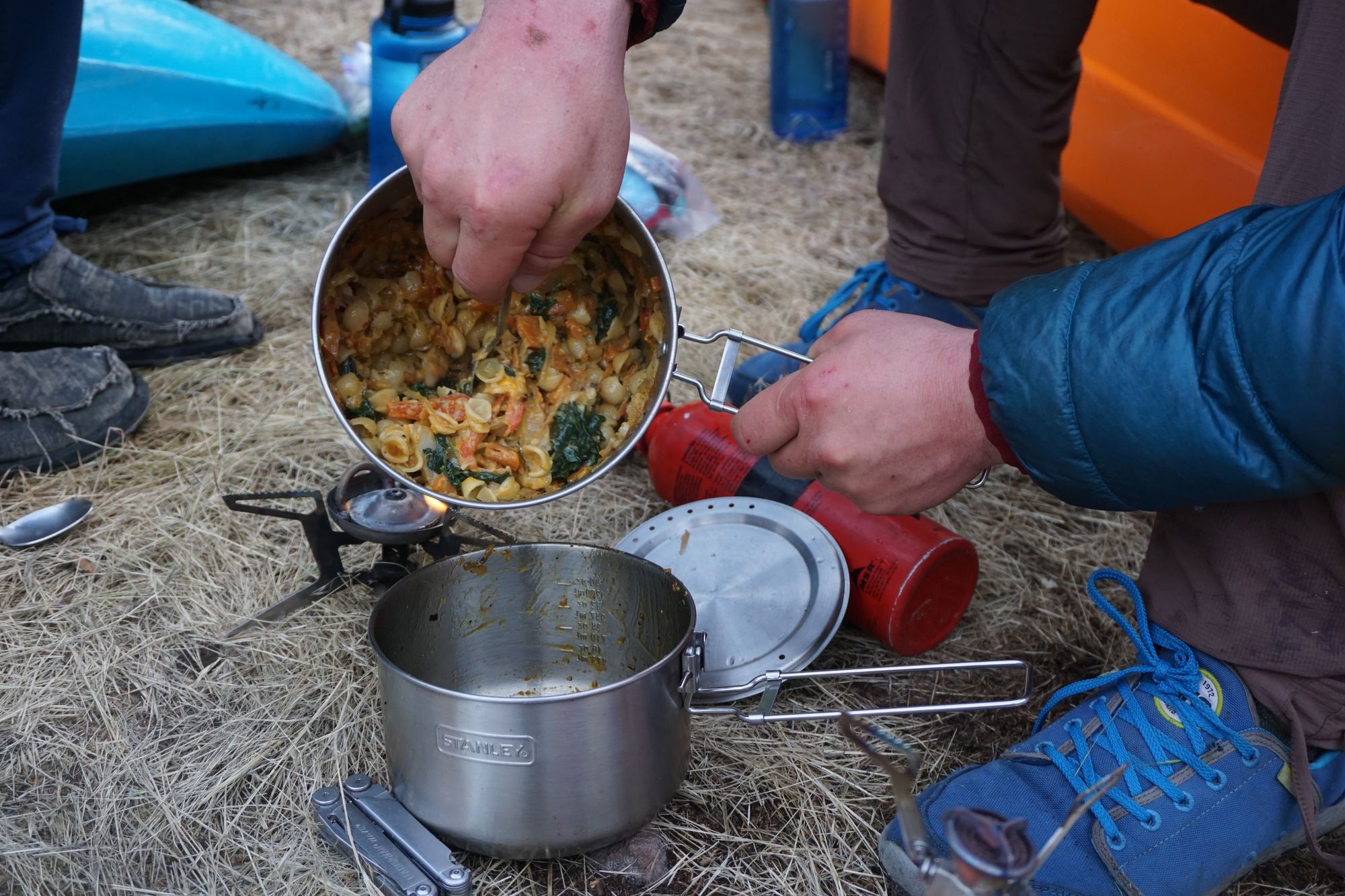
Examples of Day-Long Meal Plans for Various Diets:
Stookesbury’s Favorite Backcountry Vegan Meal Plan
Breakfast -150g oats, chia, flax, pumpkin seeds, hemphearts, raisins and walnuts (add a little salt).
Snack - Powerbag (nuts, dried fruit, vegan chocolate)
Lunch - Hummus, veg (arugula, beet, carrot, avo) sandwich
Dinner - 150g Rice, lentils, broccoli, onion, garlic, with or without nuts, salt, and olive oil.
TOJ’s Favorite Backcountry Gluten-Free and Dairy-Free Meal Plan
Breakfast - Pre-cut kale scrambled with eggs, avocado, and vegan “cheese”
Snack - Bobo’s gluten free oat bars, apple, and dairy-free dark chocolate peanut butter cups
Lunch - Gluten free tortillas with peanut butter and jelly
Dinner - Roasted root veggies (sweet potato, beets, carrots, potato), kale, and quinoa, topped with avocado and vegan “cheese” if preferred.

The Outdoor Voyage booking platform and online marketplace only lists good operators, who care for sustainability, the environment and immersive, authentic experiences. All listed prices are agreed directly with the operator, and we promise that 86% of any money spent ends up supporting the local community that you’re visiting. Click the image below to find out more.

2nd best newsletter in the universe